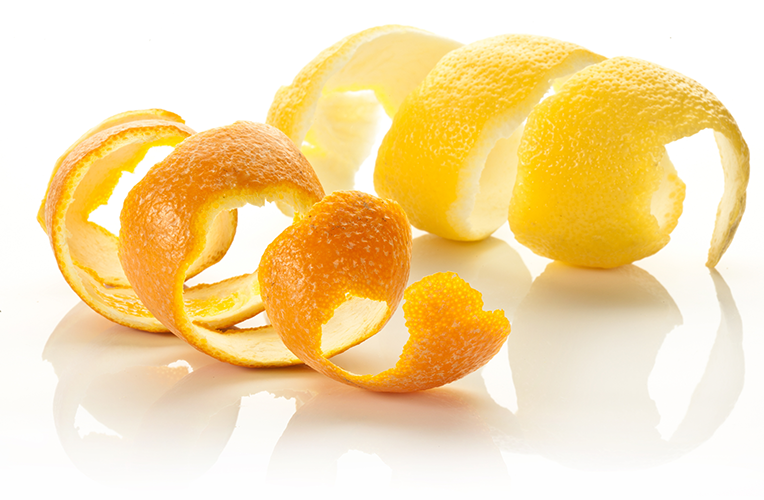Top 5 Facts about Citri-Fi® Upcycled Citrus Fiber
For the past 20 years, Fiberstar has been the original pioneer of upcycled citrus fibers which originate from the citrus juicing industry. This superior citrus fiber provides water holding, emulsification and added viscosity which are not equal to other citrus fibers on the market. Citri-Fi® is produced using a clean process free from chemical modifications which supports a clean label. Not only does this citrus fiber contribute dietary fiber, but it also provides multiple functionalities that improve the stability, texture and mouthfeel of a variety of food and beverages.
The True Citrus Fiber Pioneers – Fiberstar, Inc.
The Fiberstar team takes pride in being the upcycling citrus fiber forerunners. For over 20 years, Fiberstar’s expertise revolved around creating value-added products from plant-based fibers, specifically citrus-based fibers. This technology evolved years before other food ingredient companies jumped on the bandwagon after noticing the value that citrus fiber brings to the food and beverage market.
The 20-year mastery in citrus fiber technology and dedicated passion built a solid foundation for converting side streams into value-added ingredients. Because of this, Fiberstar produced a line of citrus fibers that fit today’s paradigm – clean label, fiber enhancement, sustainability and cost savings. For instance, Citri-Fi citrus fiber supports a clean label and uses a clean process. The process preserves the fibrous content which contributes fiber to food and beverages. As a result, citrus fiber provides water holding and emulsification which aids in extending pricey foods like tomato paste, egg and animal meats to create cost savings.
After witnessing the value of citrus fiber when the clean label and upcycled trends surfaced, other ingredient suppliers followed suit by adding a citrus fiber to their portfolios. In the end, the industry recognizes Fiberstar as one of the first to put citrus fiber on the map in the food ingredient world.
Citrus Fibers are not Created Equal
Today, the market offers several citrus fibers. However, not all citrus fibers are created the same. Citri-Fi originates from byproduct of the citrus juicing industry. This upcycled citrus fiber’s highly efficient process is free of chemical modifications and solvents which keeps native pectin intact how Mother Nature intended. Thus, the intact pectin creates the superior functionality – water holding and emulsification. And the neutral flavor allows formulations to use higher levels if needed without flavor impact.
Other citrus fiber suppliers pull from their own pectin extraction which is subjected to solvents and potentially other chemicals. In other words, this process is not free of chemical modifications. The pectin is typically stripped in these processes leaving behind a residual amount which limits its functionality. This negatively affects the citrus fiber’s water holding capacity and emulsification power. Depending on the residual pectin present, some suppliers add pectin back to restore the full functionality which is an added step in the process. Additionally, other processes may not minimize the bitter notes that typically accompany citrus peel. As a result, these citrus fibers are limited to non-sensitive food applications.
Two Decades of Upcycling: Citri-Fi Citrus Fiber
Fiberstar’s technology and business started by creating and selling an upcycled citrus fiber over 20 years ago. This took place years before upcycled or sustainability became center stage topics. Though upcycling began life as a way to recoup dollars from the business decades ago, it was not until now when upcycling entered the limelight. This market asking for a circular economy with minimal environmental impact or zero waste spearheaded this. Fiberstar's upcycling model occurred before its time. And because of this, the company's expertise in upcycling spurred several product launches thru the years solving the market’s toughest formulation challenges. These ranged from oil, fat and egg reduction, plant-based meat textures, consumer friendly labeling and tomato paste extension.
Clean & Natural: The Process to Labeling
Clean label continues to be a hot topic today. However, clean goes beyond just the labeling. This subjective term also relates to how food is grown, harvested and processed. In the citrus fiber world, this equates to how citrus fiber is procured and re-purposed to benefit the market. As mentioned, Citri-Fi is produced from byproduct of the citrus juicing process. The spent fiber is then refined further by using methods free from chemical modifications and solvents. Other citrus fiber producers capture their citrus fiber from pectin extraction which typically uses solvents and other chemical modifications.
Citri-Fi is truly a clean upcycled citrus fiber from processing to the final product. Labeling options include citrus fiber, dried citrus pulp or citrus flour which all resonate well in the natural market. In addition to the clean story, this citrus fiber is non-GMO, allergen-free and contains no E-number. USDA certified organic citrus fiber, Citri-Fi 400, is now available.
Citrus Fiber is Multi-functional and Fiber Enhancing
Because citrus fiber contains the words "fiber", the market assumes that its primary role points to fortifying foods. However, different types of dietary fibers exist in the market. Some fibers fortify foods. And some of these dietary fibers provide prebiotic effects used to improve digestive health. Alternatively, some fibers deliver functional benefits in addition to fiber enrichment. For example, Citri-Fi provides water holding, emulsification and added viscosity.
These multi-functional upcycled citrus fibers, when used less than 1%, improve the stability, texture and nutrition of a variety of food and beverages. For instance, in baked goods Citri-Fi improves moisture retention which enhances the perception of freshness over time. Also, this natural fiber can reduce eggs, oil and/or fat while maintaining the full-fat mouthfeel. In sauces, Citri-Fi creates stability and improves the texture. For example, Citri-Fi extends tomato paste up to 25% while maintaining the natural tomato-like texture. And in plant-based beverages, this upcycled citrus fiber improves the full-body mouthfeel and stability without using other gums and stabilizers. In the end, Citri-Fi is a versatile multi-functional citrus fiber that improves dairy, dressings, processed meats, frozen foods, beverages, dairy alternatives and meat substitutes.
For more information about Citri-Fi citrus fiber or to order a sample please contact us.



